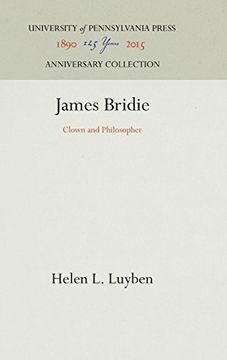Synopsis "James Bridie (in English)"
This critical analysis of twelve of the plays of James Bridie (1885-1951) illustrates that throughout Bridie's work there exists a philosophical continuity which can be traced through three stages of moral awareness and which when recognized goes far in defining Bridie's genius. Bridie, as the study attempts to show, was essentially a moralist, and his plays are in a special sense morality plays; thus his original use of religious myth is explored, particularly his use of the myth of the fall from innocence. Bridie's first play, The Switchback uses the myth of Adam's temptation and fall to tell the story of a Scottish physician's struggle to meet both self and social responsibilities. Four other plays, Tobias and the Angel, The Girl Who Did Not Want to Go to Kuala Lampur, Marriage Is No Joke, and The Black Eye, again deal with the Fall, this time with innocent Adams who remain oblivious of the demons tempting them to leave their particular Garden of Eden. The discussion of Tobias also introduces Bridie's use of the Prodigal Son story. The disillusionment of experienced Adams is studied in the late plays; the disillusioned Adam of the last Play, The Baikie Charivari, seems to be a modern-day Pontius Pilate. Aside from exploring the mythical content of the plays, Helen L. Luyben defends Bridie as a craftsman against accusations that he was a bungler. She maintains that the structure of the plays is not diffuse but carefully plotted, as is apparent in the conscious use of myth (supported by a metaphysical use of language) and in the common structural techniques found throughout the plays. As Bridie's morality goes beyond the limits of logic, so his structure disregards the limitations of realistic drama, demanding dramatic forms-farce and fantasy-which will encompass the illogical and portray a higher reality than the realistic form. Thus his language operates both on a literal and poetic plane. Finally, Bridie's moral affinity with Shaw and Ibsen is explored, not with the intention of tracing literal borrowing, but to clarify Bridie's philosophical and dramatic intention.

